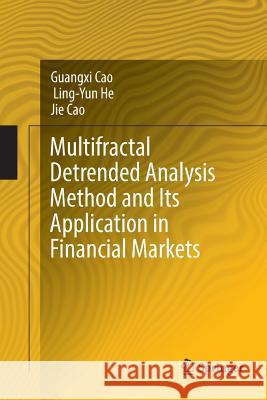Multifractal Detrended Analysis Method and Its Application in Financial Markets » książka
topmenu
Multifractal Detrended Analysis Method and Its Application in Financial Markets
ISBN-13: 9789811356810 / Angielski / Miękka / 2019 / 255 str.
Kategorie:
Kategorie BISAC:
Wydawca:
Springer
Język:
Angielski
ISBN-13:
9789811356810
Rok wydania:
2019
Wydanie:
Softcover Repri
Ilość stron:
255
Waga:
0.38 kg
Wymiary:
23.39 x 15.6 x 1.42
Oprawa:
Miękka
Wolumenów:
01
Dodatkowe informacje:
Wydanie ilustrowane











